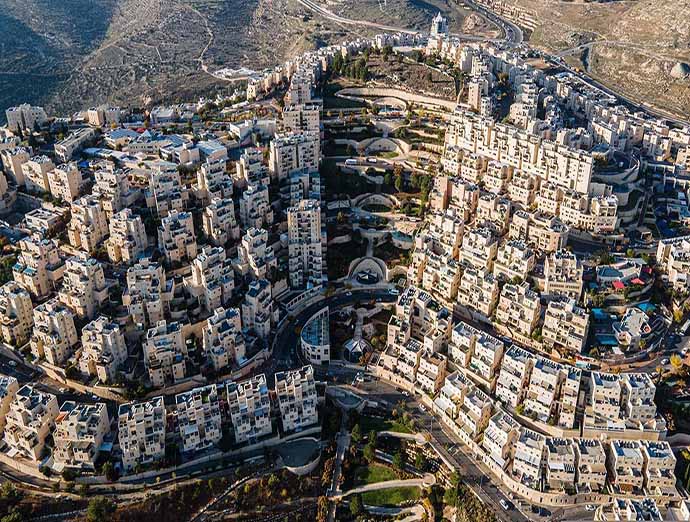The Israeli settlements in the West Bank and East Jerusalem have long been a point of contention, both within Israel and internationally. While some argue that the settlements strengthen Israel’s security and territorial claims, others believe that they jeopardize the prospects for peace and harm Israel’s reputation on the global stage. To assess whether Israeli settlements are good for Israel, it’s essential to explore their political, security, economic, and diplomatic implications.
Security Concerns and Strategic Advantages
One of the primary arguments in favor of Israeli settlements is their perceived security benefits. Proponents assert that establishing settlements in the West Bank provides Israel with strategic depth, especially in areas that are close to major population centers. From a security perspective, settlements create a buffer zone that can prevent potential attacks from militant groups and hostile neighbors.
Moreover, many settlers see themselves as part of a broader mission to maintain Jewish presence in historically significant areas. These regions, particularly in the biblical heartland of Judea and Samaria, hold deep cultural and religious significance for many Israelis. The presence of Jewish communities in these areas is often seen as an assertion of Israel’s right to exist within these ancient territories.
However, critics argue that the expansion of settlements actually undermines Israel’s long-term security by fueling tensions with Palestinians. The spread of settlements is seen as an obstacle to the two-state solution, which is widely considered by the international community as the most viable path to peace. By continuing to build settlements, Israel risks deepening the conflict and increasing the likelihood of violence.
Economic Impact of Settlements
Economically, Israeli settlements have both positive and negative implications. On the one hand, the settlers contribute to the economy by developing infrastructure, agriculture, and industries in areas that might otherwise remain underdeveloped. Many settlers are involved in agriculture and manufacturing, providing jobs and economic benefits not only to Israelis but also to some Palestinians living nearby.
On the other hand, maintaining the settlements comes with significant costs for the Israeli government. The Israeli state invests heavily in security and infrastructure to protect settlers, which places a strain on public finances. Some argue that these resources could be better used to address domestic issues within Israel’s pre-1967 borders, such as housing shortages, healthcare, and education.
Diplomatic Fallout and International Relations
One of the most significant challenges posed by Israeli settlements is their impact on Israel’s diplomatic standing. The settlements are widely regarded as illegal under international law, based on the Fourth Geneva Convention, which prohibits the transfer of an occupying power’s civilian population into occupied territory. Israel disputes this interpretation, but the continued expansion of settlements has led to widespread condemnation from the United Nations, European Union, and many countries, including some of Israel’s closest allies.
This diplomatic fallout has broader implications for Israel’s international relationships. The settlement issue complicates Israel’s relations with key partners and hampers efforts to build alliances with new countries. For example, while Israel has recently made strides in normalizing relations with several Arab nations through the Abraham Accords, the settlement issue remains a sticking point in relations with the broader Arab and Muslim world.
Furthermore, the settlements weaken Israel’s moral standing in the eyes of many international observers, who view the expansion of these communities as incompatible with a peaceful resolution to the Israeli-Palestinian conflict. For Israel, balancing its national interests with international pressures remains a complex and ongoing challenge.
Impact on the Israeli-Palestinian Conflict
The settlements have a profound impact on the Israeli-Palestinian conflict. The growth of these communities, especially deep within the West Bank, makes the possibility of a contiguous Palestinian state increasingly difficult to achieve. Many analysts argue that the two-state solution, which envisions an independent Palestinian state alongside Israel, is undermined by the continued settlement expansion, as it fragments Palestinian territories and complicates negotiations.
For Palestinians, the settlements are seen as a form of occupation and land seizure, deepening resentment and fueling the cycle of violence. This has led to a hardening of positions on both sides, making negotiations more difficult and reducing the chances of a peaceful resolution. By continuing to build settlements, Israel risks further entrenching the conflict and perpetuating a cycle of hostility and mistrust.
Whether Israeli settlements are good for Israel depends on the lens through which the issue is viewed. From a security and historical perspective, settlements may be seen as reinforcing Israel’s territorial claims and providing strategic depth. However, the economic costs, diplomatic fallout, and negative impact on the Israeli-Palestinian peace process must also be considered.
In the long term, the settlements complicate Israel’s efforts to achieve peace and improve its standing on the global stage. For many, the expansion of settlements undermines the prospects for a two-state solution, which is widely regarded as the most viable path to lasting peace. Ultimately, the future of Israeli settlements will play a critical role in determining the fate of the Israeli-Palestinian conflict and Israel’s relationships with the broader international community.


